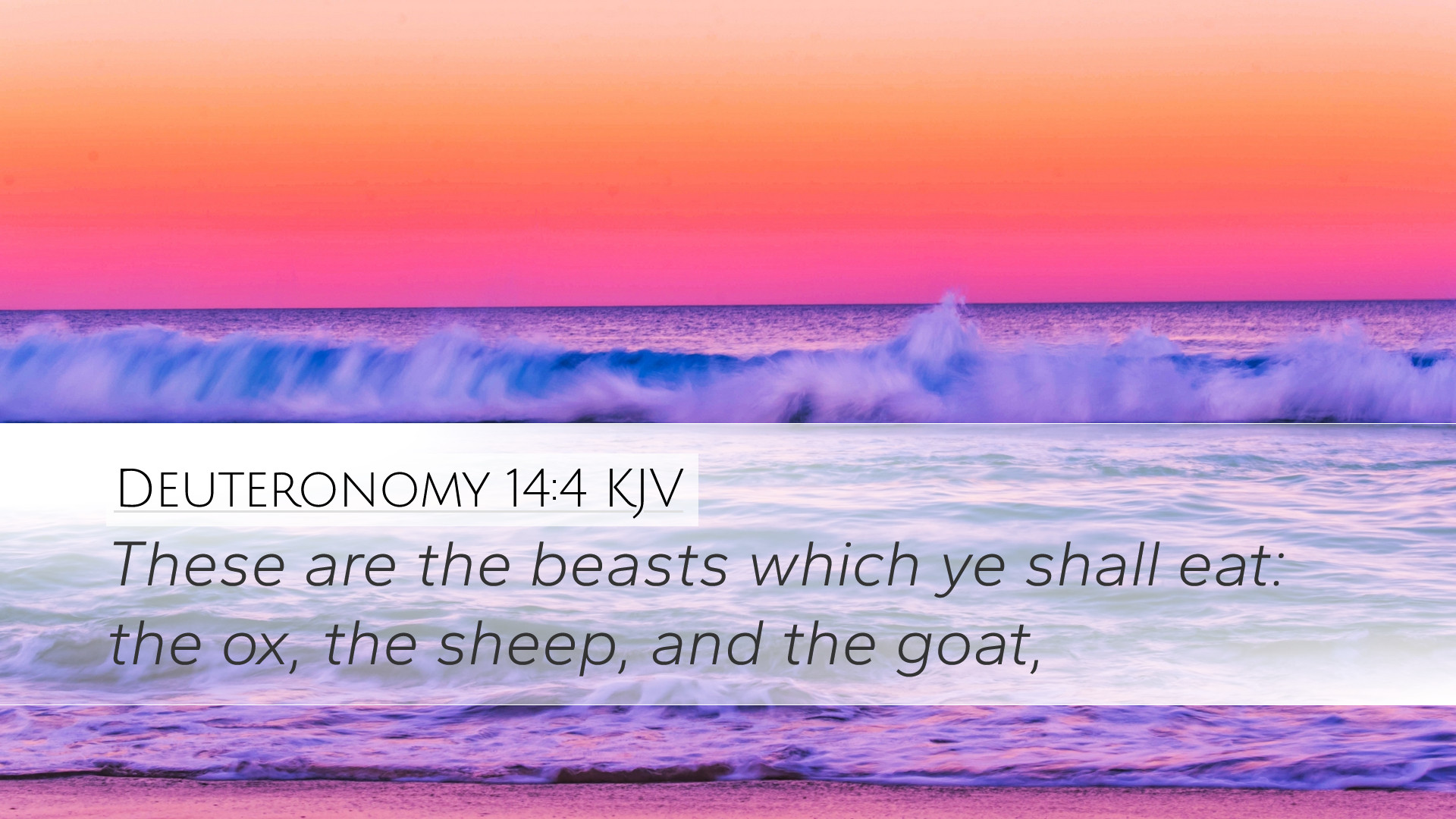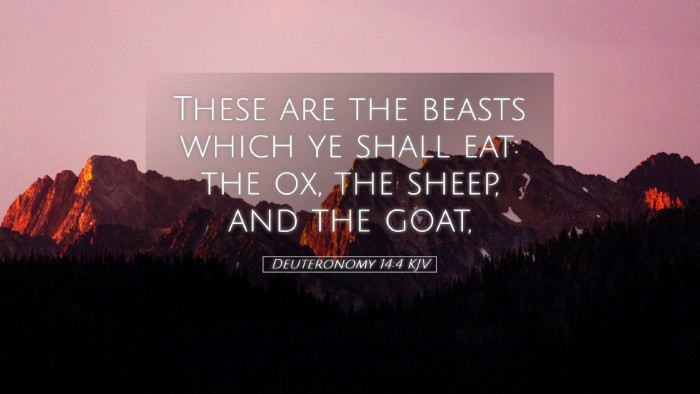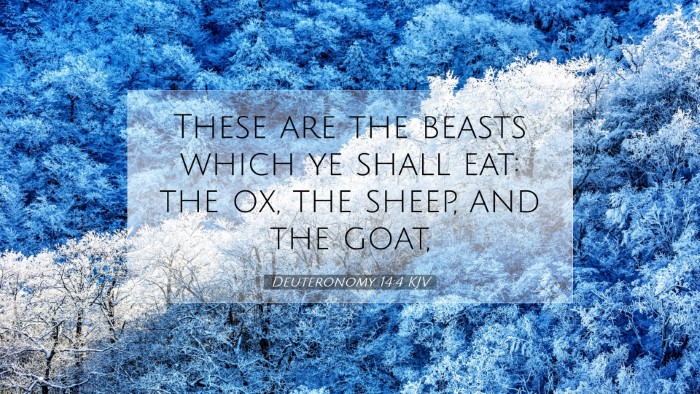Commentary on Deuteronomy 14:4
Deuteronomy 14:4 provides a list of specific animals that the Israelites were permitted to eat under the Mosaic Law. This verse is part of a broader discourse regarding dietary laws and the concept of holiness within the community of God’s people.
Text of Deuteronomy 14:4
"These are the animals you may eat: the ox, the sheep, the goat," (Deut 14:4, NIV).
Exegesis of the Verse
The primary objective of these dietary stipulations was to distinguish the Israelites from other nations and to promote a sense of holiness and dependence on God. Each of the animals listed serves a purpose not merely as food but as symbols of God’s provision and covenant relationship with His people.
Insights from Matthew Henry
Matthew Henry emphasizes the importance of these dietary laws as a means of spiritual discipline. He notes that the classification of clean and unclean animals provided the Israelites with a framework for holiness, influencing both their dietary choices and their overall way of living.
- Distinction: Henry argues that the dietary laws were a divine distinction meant to set Israel apart from surrounding nations.
- Symbolism: The clean animals represented purity and righteousness while their consumption signified participation in God’s blessings.
- Obedience: Adhering to these laws was an exercise in obedience and submission to God’s authority, reflecting the broader relationship of the covenant community.
Insights from Albert Barnes
Albert Barnes provides an interpretation that emphasizes the intrinsic value of the dietary laws. He argues that these laws served both a ceremonial purpose and a practical one, ensuring that the Israelites remained distinct in their worship and lifestyle.
- Ceremonial Laws: According to Barnes, adhering to these dietary laws was a reflection of the holiness required of God’s people.
- Health Considerations: Barnes highlights the potential health benefits of these laws, suggesting they may have been given for the welfare of the community.
- God's Will: This distinction showcases the necessity of aligning one’s life with God’s will as a testament to faithfulness.
Insights from Adam Clarke
Adam Clarke provides a historical perspective on the dietary laws, noting their roots in ancient practices and their significance in the context of Israel’s identity. He delves into the animals mentioned, providing further context to their characteristics and the symbolism associated with each.
- Animal Classification: Clarke elaborates on the nature of the animals listed as clean, linking them to themes of strength and purity.
- Contextual Relevance: He discusses how these laws were not merely arbitrary but rather reflected the cultural context of the Israelites.
- Spiritual Application: Clarke relates the concept of clean animals to the inner purity that God desires, emphasizing that true obedience stems not from mere regulation but from a heart aligned with God.
Theological Reflection
As practitioners of faith, it is crucial to extract the underlying principles from Deuteronomy 14:4, moving beyond the literal interpretation of the dietary laws. The concept of holiness, as articulated in this verse, transcends mere dietary restrictions and ushers in a greater understanding of what it means to live in covenant with God.
- Holiness and Separation: The Israelites were called to be a holy people, set apart by their practices and beliefs, a theme echoed throughout the entirety of Scripture.
- Reflection of God’s Character: The dietary laws reflect God's own nature and His desire for His people to emulate His holiness in their lives.
- Invitation to Intimacy: Through such laws, God invites His people into a deeper relationship, fostering an awareness of His presence in daily life.
Practical Application
For contemporary readers, especially pastors and theologians, the dietary laws can serve as a profound metaphor for spiritual discipline and growth. Here are key takeaways for application:
- Spiritual Practices: Just as the Israelites were intentional in their dietary choices, we too should be mindful of our spiritual practices that draw us closer to God.
- Community Standards: The communal aspect of these dietary laws encourages the church to maintain standards that reflect God’s holiness.
- Inner Transformation: This passage calls for a heart transformation, prompting believers to prioritize purity in thought and action, aligning with God’s character.
Conclusion
Deuteronomy 14:4 serves as a significant reminder of the calling to holiness and the community aspect of faith. The insights provided by various commentaries illuminate the depth and breadth of God’s intentions behind these laws. As we reflect on these practices today, may we seek to embody the principles of separation, obedience, and intimacy with God, fostering a lifestyle that aligns with His will, and serves to distinguish us as His people in a diverse world.


